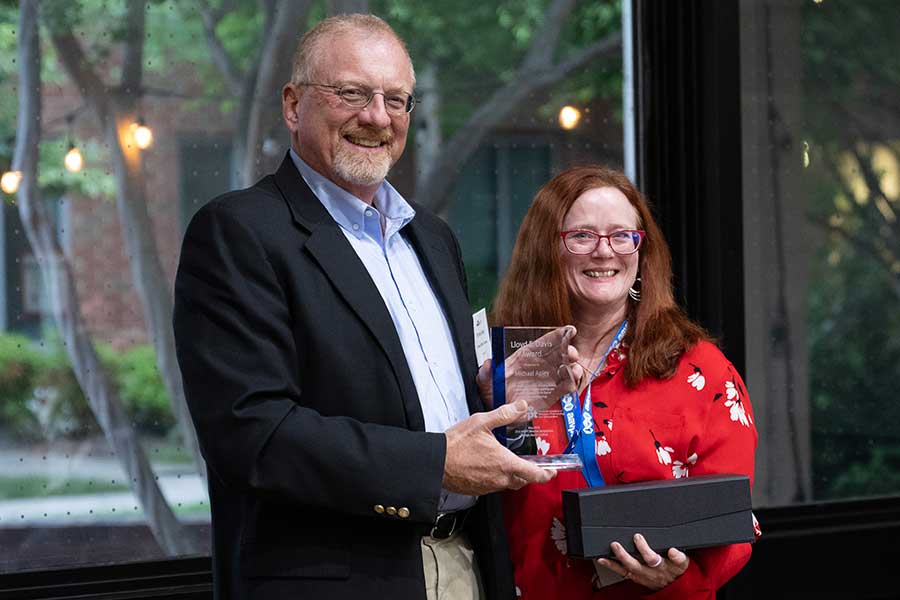Dr. Mike Apley receives prestigious award at AAVPT meeting
Dr. Mike Apley, head of the Department of Anatomy and Physiology at Kansas State University, was recently recognized with the Lloyd E. Davis Memorial Award. This award is presented every other year during the Biennial Symposium of the American Academy of Veterinary Pharmacology and Therapeutics to recognize outstanding lifetime achievements in research, teaching and professional service in the field of veterinary pharmacology.

Dr. Mike Apley accepts the LLoyd E. Davis Memorial Award from Dr. Robbin Koenig, president of the AAVPT.
The award honors the legacy of Dr. Lloyd E. Davis, whose research focused on comparative drug disposition. Serving as a veterinary professor at Ohio State University, Colorado State University and the University of Illinois, his work contributed significantly to the development of veterinary pharmacology and therapeutics as a discipline.
Although Dr. Apley had not personally met Dr. Davis, he is familiar with his legacy.
“Dr. Davis was a pioneer in veterinary clinical pharmacology and very influential in the profession as a mentor,” Dr. Apley said. “Having studied the work of Dr. Davis during my training in clinical pharmacology, it’s an honor to receive this award in memory of his career and to be recognized by my peers within the association.”
“Dr. Apley's body of work in the veterinary pharmacology of food animals and his dedication to both the welfare of the animals and the concerns of farmers made him an obvious pick for this recognition,” said Dr. Robbin Koenig, president of the AAVPT. “His phenomenal job in advocating for his profession beyond the scientific community is widely recognized among his peers, and the AAVPT was pleased to be able to present him with the Lloyd E. Davis Award for his considerable contributions to our shared profession.”
As part of the award presentation, Dr. Apley spoke about his work at K-State on food animal therapeutics, antimicrobial use monitoring and antimicrobial resistance. He also talked about where the profession is headed and highlighted the work of his graduate students in these areas.